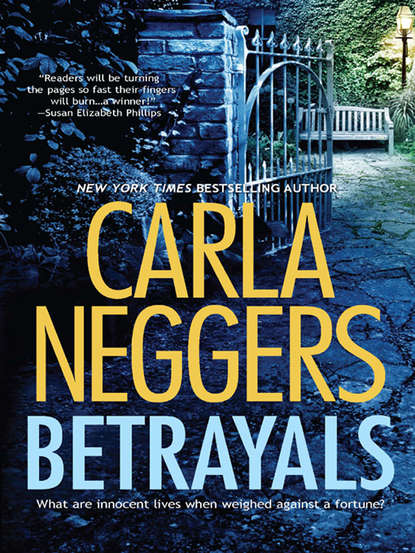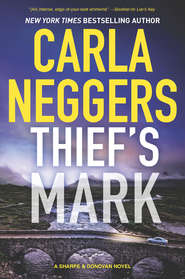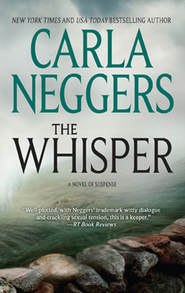По всем вопросам обращайтесь на: info@litportal.ru
(©) 2003-2024.
✖
Betrayals
Автор
Год написания книги
2018
Настройки чтения
Размер шрифта
Высота строк
Поля
“Grandfather, have you ever lied to me?”
He didn’t hesitate. “No. Except about the cat…”
“Never mind the cat. About Vietnam.”
“No, Rebecca. I never lied to you.”
She leaned forward. “But you haven’t told me everything, either, have you?”
“My mistakes and my triumphs are my own to live with, not yours. If you’re asking me do I have regrets, I’ll answer you. Yes. Yes, I have many regrets. And not only about your father and Benjamin. I’ve been to the Vietnam Memorial, and I’ve looked at those fifty-eight thousand names and thought about the men and women and children I knew in Indochina who are all dead. And I’ve asked myself what I might have done differently during my years there to prevent what came later. More arrogance on my part, perhaps. But perhaps not. The point is, I’ll never know. If I’ve learned anything in my study of history and my seventy-nine years on this planet, it’s that we have no power to change what’s past.”
Rebecca didn’t listen easily to his words. “What about the future?”
He pulled his thin lips together. “I don’t have a crystal ball. I’ve often wished I did. We can only do our best and carry on.”
“That’s it, then?”
“There’s nothing I can tell you that will change anything.”
“Grandfather,” Rebecca said, controlling her impatience, “I’m tired of ‘carrying on’ without all the facts. That my picture can still make the front page of a supermarket tabloid just reminds me that 1963 and 1975 aren’t going away. They’re going to keep haunting us—me. And I have a right to know the whole truth.”
“Study your history,” Thomas Blackburn said stonily. “You’ll discover that no one ever knows the ‘whole’ truth.”
She swallowed hard and gritted her teeth, but suspected he could tell how angry and frustrated she was. “What do you want me to do, pretend my picture’s not plastered across millions of newspapers?”
“No, Rebecca,” he said, climbing to his feet. “Never pretend nothing’s never happened.”
Without another word, he turned back to his wilted seedlings, and Rebecca sighed to herself, wondering why she’d sought out her grandfather for advice and information, why she’d thought anything had changed. She had hoped the tabloid publicity and the simple fact that she was an adult—not the eight-year-old who’d lost her father or the twenty-year-old who’d lost her first lover—would prompt him to talk to her. There were so many gaps in her understanding of his years in Indochina, his ill-fated company, the scandal that had brought him down and changed her own life forever.
But she should have known better. Over the years, she had come to learn that if Thomas Blackburn only dealt in the truth, it was handed out precious little at a time.
Seven
Mai Sloan rode beside her father with her arms crossed as they drove over the Golden Gate Bridge and up into the hills of Marin County, where her grandfather lived. She hadn’t spoken since they’d left the house. She had refused to pack, so Jared had thrown things haphazardly into a big canvas satchel and said if she ran out of socks or didn’t have clothes that matched, tough. She’d yelled he wasn’t being fair, and he’d said too bad, life wasn’t fair and she might as well learn that now. Usually he made an effort to explain why he’d made a particular decision, but not this time. He’d just told her to get her things together, she was spending a few days with her grandfather. Nothing she’d said—not even when she’d called him a dictator—softened that lock-jawed look of his.
She continued to sulk as they cleared the state-of-the-art security system at Wesley Sloan’s very private home in Tiberon, overlooking San Francisco Bay. Ordinarily Mai would have jumped at the chance to spend a few days there. Granddad had everything. But her father had pulled her from school and refused to tell her what was going on—refused to discuss the white-haired man with the scarred face he’d run off with a gun she hadn’t even known he owned. Was the stranger some nut out to kidnap a Winston-Sloan? Was he connected with the motorcycle gang? What? Jared wouldn’t say. He only instructed her not to leave her grandfather’s property, even to go to school.
“Quit pouting, Mai,” he said unsympathetically as they headed up Wesley Sloan’s driveway. “Some things you just have to swallow.”
“I have to swallow more than most!”
“Not true. You’re one lucky kid.”
“Oh, I know,” she snapped back. “I could be begging in the streets of Ho Chi Minh City like hundreds of other Amerasians left behind in Vietnam. Compared to them I don’t have a thing to complain about. I should always smile and take whatever anyone dishes out, especially my own father, since so many of us don’t have fathers.”
Jared sighed. “You have the right to complain about whatever you want to complain about. Your pain is yours. Just don’t expect me to indulge self-pity. And you’re the one who insists on measuring your life against that of the Amerasians who didn’t get out of Vietnam. You can have empathy for their plight without feeling guilty because you’re here and they’re not.”
She stared out the window, refusing to look at her father. She had been reading books and renting videotapes about the Vietnam War and the country of her birth, even trying to learn some Vietnamese. Her father told her it was normal to be confused at fourteen, urged her to concentrate just on being herself. But who was that? Sometimes she didn’t know. And sometimes she hated herself for not being satisfied when so many other Amerasians suffered prejudice, cruelty and extreme poverty. They had never slept in a decent bed or felt the safety and security she took for granted. Sometimes she hated herself for not being more satisfied. She was so lucky. Why did she want more?
“Are you even going to tell me where you’re going?” she asked.
Jared hesitated, not knowing what to say to his daughter. He hadn’t since The Score had come out and she’d seen the picture of Rebecca, him and herself as an infant. Then the man who had shot him and left him for dead in Saigon had shown up on his doorstep, and that changed everything. Initially Jared hadn’t recognized the scarred face, but then he saw the shock of white hair and the deadness of his soft brown eyes. And he’d remembered. Screams, pain, grief, his own paralyzing fear on that hot, tragic and violent night fourteen years ago in Saigon, when he’d lost Tam…and Rebecca.
He wasn’t going to lose Mai.
Finally, he told her, “I’m going to Boston.”
She whipped around. “Boston! But Dad—”
“Not a word, Mai. You’re not coming with me. Be glad I’ve told you anything at all.”
He could see her restraining herself from the fit she might have thrown a year ago, but she was maturing. She pulled in her lower lip and turned back to the window. She had wanted to go to Boston for years. It was the city where the Winstons had lived for generations, and where her father had grown up. And it was where he had taken her, so briefly, after their escape from Saigon. Jared tried to understand. She felt a part of her was in Boston where her father had grown up, and in Saigon, where her mother had lived and Mai herself had been born. But these were places she couldn’t get to on her own. And Jared refused to take her.
“Are you going to see Rebecca Blackburn?” she asked.
Not if he could help it. Or, he was positive, if she could. The hardest he’d laughed in years was when he saw the 60 Minutes piece on Junk Mind and found out Rebecca Blackburn was rolling in money. Served her right, reverse snob she’d always been. But he hated how much he’d hurt her, and seeing her again would only dredge up all that old pain.
He told his daughter, “I doubt it.”
He had never told Mai about Rebecca’s role in getting them both out of Saigon, nor about the famous photograph of them. She had cursed and screamed at him when he’d showed it to her in The Score, and he hadn’t resented her anger. He’d have been angry, too. Rebecca, he’d explained inadequately, had been a friend.
“Then who are you going to see?” his daughter asked.
“Mai—cut me some slack, all right? We’ll talk another time. I promise. But not right now.”
“I just…”
“I know, kid.”
He parked in front of his father’s house and gathered her into his arms, wanting to hold her forever, knowing he couldn’t. “You mean everything to me, Mai,” he said. “I’m not doing this to hurt you.”
“I trust you, Dad. You know that.”
“Good. Then sit tight and let Granddad spoil you for a few days. I’ll call you. And I’ll be back as soon as I can.”
She tried to smile. “Okay.”
“Now go on.”
“Aren’t you coming in?”
He shook his head. If Mai couldn’t wrangle an explanation out of him, Wesley Sloan just might. His daughter seemed to understand his reluctance, and she hugged him, made him promise again to call, grabbed her satchel and jumped out of the car. He watched her until she turned back at the front door and waved goodbye. He waved back, until finally she disappeared inside.
He headed out of the quiet hills of Tiberon back down to the Golden Gate Bridge and up to Russian Hill, where his house was quiet and lonely without Mai. With grim efficiency, he cleaned and loaded the gun he’d often prayed he’d never have to use. And he sat in his front room, with its fantastic view of San Francisco Bay, and watched the fog swirl in, half wishing the white-haired man would come back. If Mai hadn’t been there, Jared didn’t know what he’d have done, but he’d lived the last fourteen years so that 1975 didn’t have to be her pain, as well.
He clenched his teeth. “It’s not going to be.”
But it already was, he realized, and pushed the heavy thought aside.











